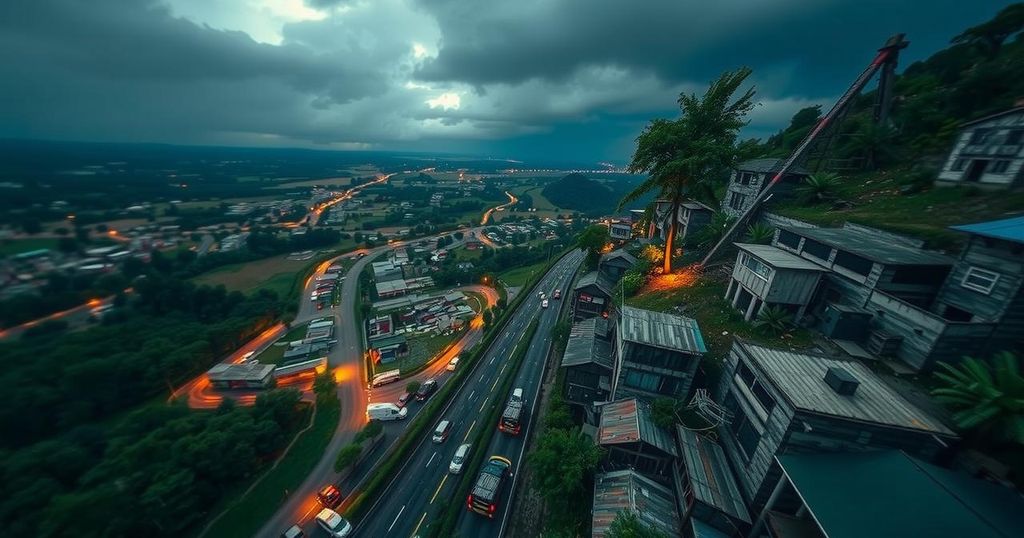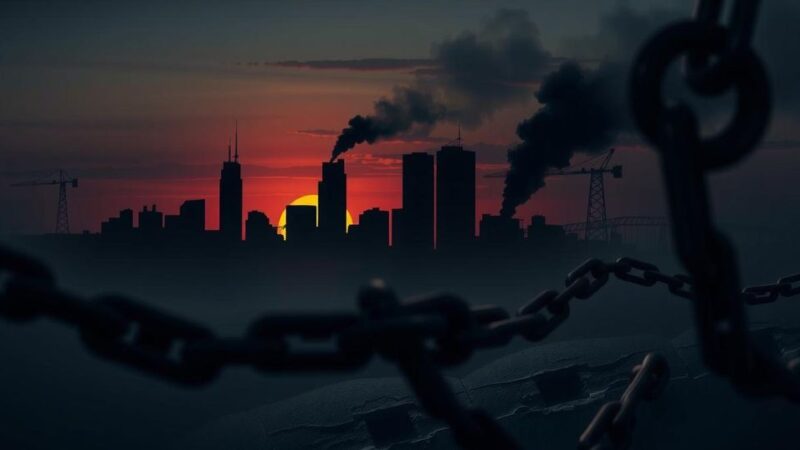The eastern DRC is beset by persistent violence, with significant recent casualties resulting from attacks linked to the Allied Democratic Forces. Local military inaction and misguided international responses compounded by outdated peace initiatives leave civilians vulnerable. The region’s security dynamics are further complicated by nationalistic government strategies and external pressures, indicating a dire need for reevaluation of international conflict resolution methods.
The eastern Democratic Republic of the Congo (DRC) continues to grapple with profound violence and chaos, a situation exacerbated by outdated peace-building initiatives. Recent incidents illustrate a disturbing trend; for example, an attack on August 10 resulted in the deaths of at least 18 individuals in Beni, a city bordering Uganda, adding to the toll from a June 7 assault that left 80 dead and another on June 13 that killed 40. The recurrent violence is largely attributed to the Allied Democratic Forces, a rebel group of Ugandan origin aligned with the Islamic State since 2019. Alarmingly, local military forces, including the Congolese army and UN peacekeepers, have consistently failed to engage in any substantial preventative action during such massacres. This inaction is emblematic of a deeper crisis within eastern DRC, as it has become a perilous environment for civilians, with nearly 7 million internally displaced persons as reported by the International Organization for Migration. Amidst the resurgence of the March 23 Movement (M23), international attention has refocused on the DRC’s turmoil. However, this attention often oversimplifies the conflict’s complexity, neglecting other armed groups that also inflict devastation in the region, while the Congolese government has leveraged nationalistic rhetoric to consolidate various militias against M23, thus complicating the security situation further. International efforts, characterized by substantial funding towards conflict resolution endeavors, peacekeeping missions, and humanitarian projects, often lack a nuanced understanding of local political realities and fail to implement effective strategies. There exists a tendency among Western donors to apply technocratic solutions to inherently political issues, focusing on anticorruption measures and social cohesion without confronting the core realities of the conflict. Additionally, international responses display a concerning inconsistency; for example, Western condemnation of Rwandan support for M23 contrasts sharply with ongoing military aid to Rwanda related to other regional conflicts. This disparity has eroded confidence in international intervention mechanisms, as local actors strategically maneuver within an increasingly fragmented geopolitical landscape that sees the rise of non-Western and private military entities with less regard for human rights principles. The shifting dynamics reveal a continuing decay of faith in the liberal interventionist model, signaling a potential transformation in the features of global and regional power relations. Consequently, it is imperative to confront these realities with sincerity to rejuvenate the mechanisms of international conflict resolution.
The ongoing turmoil and violence in eastern DRC stem from decades of complex conflict, entrenched political failings, and a fragmented international response framework. Since the 1990s, the region has seen repeated episodes of violence and mass displacements, which have been exacerbated by the activities of various armed groups, including the Allied Democratic Forces and the March 23 Movement. The involvement of external actors and inconsistencies in international support have compounded the region’s crises, often yielding ineffective or superficial solutions that fail to address underlying issues. With nearly 7 million people displaced, international framework and strategies have persisted in their historical approaches, lacking the adaptability to effectively engage with the evolving realities on the ground.
The situation in eastern DRC illustrates a critical need for a reassessment of international intervention strategies, particularly in light of shifting global power dynamics and the emergence of new actors. As longstanding Western methods of peace-building increasingly lose their efficacy, a more nuanced understanding and responsive approach to the complexities of conflict in the region becomes imperative. Only through an earnest re-evaluation of strategies and recognition of local political landscapes can the international community hope to contribute meaningfully to stabilizing this volatile region.
Original Source: www.aljazeera.com






